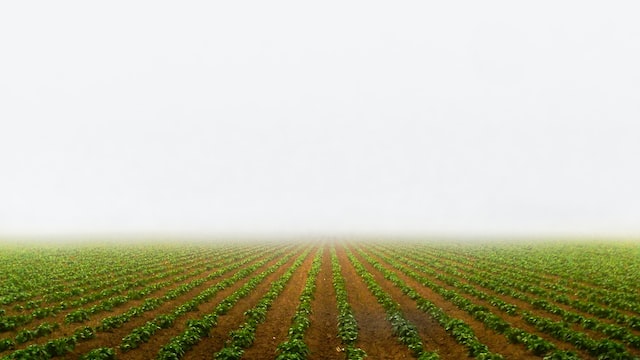Dec 12, 2022
Biden-Harris Administration investing additional $325 million for climate-smart initiatives
Agriculture Secretary Tom Vilsack has announced that the Biden-Harris Administration, through the U.S. Department of Agriculture, is investing an additional $325 million for 71 projects under the second funding pool of the Partnerships for Climate-Smart Commodities effort.
This brings the total investment from both funding pools to over $3.1 billion for 141 tentatively selected projects. Partnerships for Climate-Smart Commodities is working to expand markets for American producers who produce climate-smart commodities, leverage greenhouse gas benefits of climate-smart production and provide meaningful benefits to producers, including small and underserved producers.

“Expanding opportunities for small and underserved producers is a key goal of Partnerships for Climate-Smart Commodities. Small and underserved producers are facing the impacts of climate change head on, with limited resources, and have the most to gain from leveraging the growing market demand for agricultural goods produced in a sustainable, climate-smart way. Our goal is to expand markets for climate-smart commodities and ensure that small and underserved producers reap the benefits of these market opportunities,” said Vilsack.
The Partnerships for Climate-Smart Commodities funding opportunity had high demand from across agriculture and forestry. Between two funding pools, USDA received over 1,000 proposals requesting more than $20 billion in funds from over 700 entities, including nonprofit organizations; for-profits and government entities; farmer cooperatives; conservation, energy and environmental groups; state, tribal and local governments; universities; small businesses; and large corporations. Applications were received from all 50 states, tribal lands, Washington, D.C., and Puerto Rico.
In September, USDA announced $2.8 billion for 70 tentatively selected projects from the first funding pool, which received over $18 billion in total project requests for projects between $5 million to $100 million. All of the projects funded through Partnerships for Climate-Smart Commodities require meaningful involvement of small and underserved producers. The second funding pool was particularly focused on innovative projects that emphasize enrolling small and underserved producers and invest in measuring, monitoring, reporting and verifying the benefits of climate-smart practices at minority-serving institutions.
Partnerships for Climate-Smart Commodities projects benefit from a diverse range of project partners, including more than 30 minority-serving institutions, more than 20 tribal partners and many groups focused on working with small and underserved producers. Projects include support for activities that will expand and increase producer access to markets for climate-smart commodities, provide financial and technical assistance to support climate-smart production practice implementation, include investments in quantifying and monitoring greenhouse gas benefits of those practices and bring the resulting commodities to new markets.
To maximize access to all types of entities, the Partnerships for Climate-Smart Commodities funding opportunity offered applicants flexibility in terms of match requirements, ample time for applicants to assemble applications, and certainty that grants were appropriately sized to meet the scale and needs of diverse applicants.
USDA is currently in negotiations regarding the first 70 projects and will work with the applicants for all 141 identified projects to finalize the scope and funding levels in the coming months. Funding will be provided by USDA’s Commodity Credit Corporation.
Secretary Vilsack made the announcement from Tuskegee University, which is the lead partner on two Partnerships for Climate-Smart Commodity projects: one focused on developing climate-smart markets for agroforestry products and providing underserved producers assistance in transforming traditional production systems into agroforestry-based climate-smart production systems, and the other working with underserved producers to implement silvopasture and climate-resilient forage systems and market climate-smart sheep and goat products.
Other project examples include:
- Through the “Recognizing the Role of Buffalo Production as a Climate-Smart Commodity” project, the InterTribal Buffalo Council and other partners plan to work with 76 Tribes to incentivize their use of climate-smart practices related to buffalo herds. The Tribal Buffalo Market Initiative (TBMI) plans to assist Tribes in marketing their buffalo as a climate-smart commodity, develop sustainable programs for historically underserved Tribal buffalo producers and create a Tribally led national strategy for education and outreach of buffalo as a climate-smart agricultural product.
- Through the “Validating Agrivoltaic Technology with Underserved Agricultural Producers” project, the University of Texas Rio Grande Valley and other partners plan to pilot the climate-smart co-location of agriculture and solar power (agrivoltaics) to measure and evaluate greenhouse gas benefits and promote equitable climate-smart commodity market development for Hispanic farmers and ranchers. Partners also intend to provide direct financial and culturally relevant technical assistance to participants for implementing agrivoltaic systems on their farms and ranches.
- Through the “Growing, Marketing, and Measuring the Climate-Smart Impacts of Organic Grain and Field Crops” project, Marbleseed plans to work with organic grain producers, as well as those interested in transitioning to organic, to adopt climate-smart agricultural practices. Producers would receive enrollment incentives, and field service coordinators and marketers would help producers with marketing plans and promoting their climate-smart commodities.
A complete list of projects is available at usda.gov/climate-smart-commodities.






